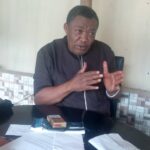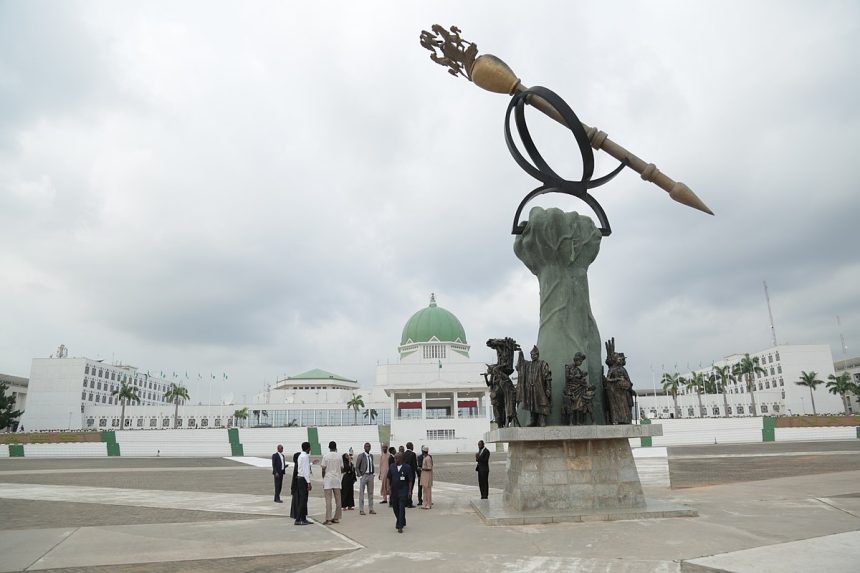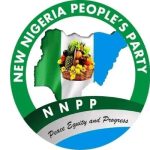The House of Representatives Committee investigating the non remittances of funds to the National Housing Fund and non utilisation of the funds has asked the Accountant General of the Federation to appear and explain why there are disparities in the deductions from workers from various agencies of government and why only N20 billion has been remitted to the Federal Mortgage Bank since 2011.
The House also asked Accountant General of the Federation to appear before it to explain why monies deducted from workers salaries are not remitted to the fund.
Representatives of the Director of the integrated Personnel Payroll and Information System, Ekwem Dem has told the committee that while deductions from salaries of workers was automatic, remittances was not automated.
He however could not tell the committee how much has been deducted as Housing Fund from workers since 2011 saying even though they have the information, he need to “query the system” before responding to the question.
Members of the committee had observer from documents presented to it by the Integrated Personnel Payroll and Information System that N23, 000 was deducted from the University of Calabar for NHF for one month, while Federal Polytechnic, Birnin Kebbi contributed N9, 000.
They asked the Accountant General to furnish the committee with information on what has been deducted from workers so far, when such money was deducted and why the money not been remitted.
A member of the committee, Hon. Timehin Adelegbe said “if the deduction if automated, the remittances should also be automated.”
The Committee also asked the Accountant General to remit all deductions of the Housing fund remitted to the federal Mortgage Bank with immediate effect and receipt presented to the committee.
Managing Director of the Federal Mortgage Bank of Nigeria (FMBN), Madu Hamman appeal to the Committee to amend the act establishing the Bank and the National Housing Fund to give more effect to the operation of the NHF.
Hamman said the Bank collected about N591. 523 billion as remittances from both the formal and informal sector of the Nigerian economy since 2011 till date out of which N238. 557 bison was collected from government Ministries, Departments and Agencies.
He said the bank also have outstanding payment of about N26. 573 billion with the office of the Accountant General of the Federation.
Giving a break down of the outstanding payment, he said the Accountant General nervously deducted about N11. 6 billion from remittances of workers to the bank between October and December 2022 as part of government revenue mistaking the remittances to be revenue coming into the bank.
He said “we had to explain to them that the money was remittances of workers contributions to the NHF before the deduction was stopped through Treasury Single Account.
He also explained that between January 2022 and December 2022, the IPPIS failed to remit about N11. 587 billion deducted from workers salaries and another N3. 356 billion between April and July 2021.
He disclosed that contributors to the National Housing Fund are eligible for a full refund of their contributions over the years with accrued interest of 2 percent upon retirement after attaining the age of 60 or inability to continue contributions due to incapacitation or death.
He said so far, the Bank has refunded N66. 678 billion to 444,637, adding that out of the N591.523 billion collected for the Nation Housing Fund within the period, about N347. 570 billion was invested in various projects financed by the Bank.
These projects include Cooperative Housing Development Loan (N44.019 billion), NHF Mortgage loan (N139.095 billion), Ministerial Pilot Housing Scheme (N38.037 billion), TUC/NLC/NECA housing scheme (31.659 billion), Individual construction loan (N269.044 million), Home Renovation Loan (N92.468 billion) and Rent to Own (N2.021 billion).
He listed some of the major challenges to include over concentration of Primary Mortgage Banks in Lagos and Abuja, while none exist in most states of the Federation, adding that only 34 primary mortgage Banks exist in the county.
He also said that the contradictions between the FMBN act and the CBN prudent guideline on single obligation limits for PMBs is affecting loan disbursement by the banks as well as lack of loan affordability by majority of contributors as a result of low income.












